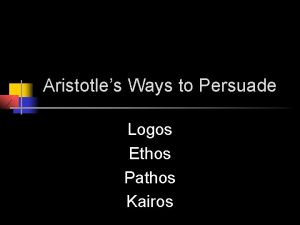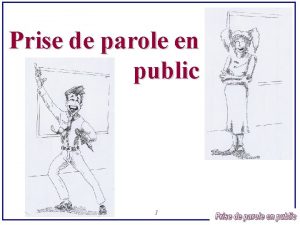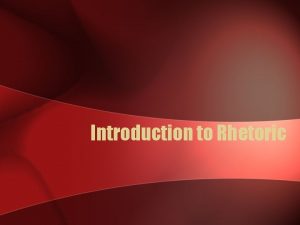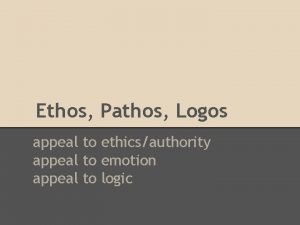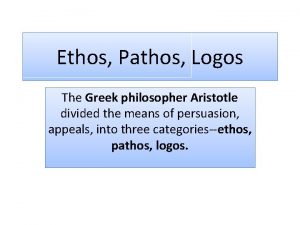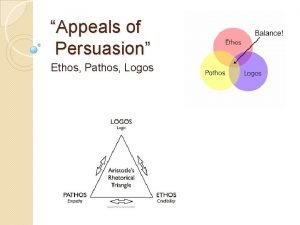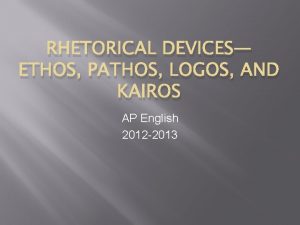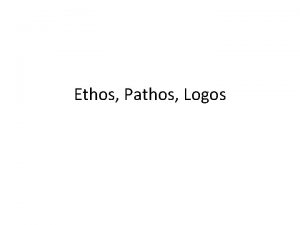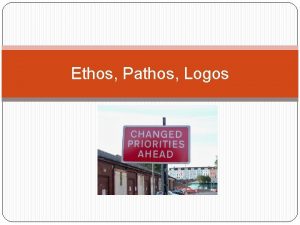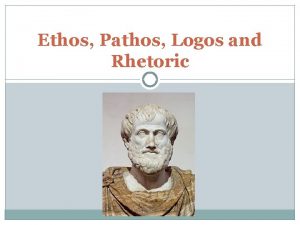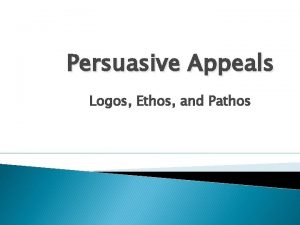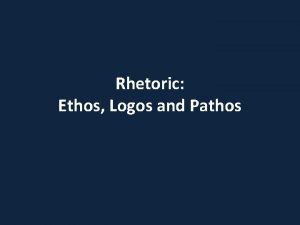RHETORIC Politicianstyle FORMS OF RHETORIC Logos Ethos Pathos










- Slides: 10

RHETORIC Politician-style

FORMS OF RHETORIC • Logos • Ethos • Pathos

PERSUASIVE TECHNIQUES RELATED TO ETHOS • Testimonial: relies on the backing of a celebrity, an expert, or a satisfied customer • Transfer: connects a product, a candidate, or a cause with a positive image or idea • Ethical Appeal: tries to gain moral support for a claim by linking the claim to a widely accepted value

PERSUASIVE TECHNIQUES RELATED TO PATHOS • Bandwagon Appeal: taps into people's desire to belong • Snob Appeal: taps into people's needs to feel superior to others • Appeal to Fear: makes people feel as if their safety, security, or health is in danger • Appeal to Pity: taps into people's compassion for others • Loaded Language: uses words with strongly positive or negative connotations (meanings) to stir people's emotions

PERSUASIVE TECHNIQUES RELATED TO LOGOS • Statistics • Facts • Inductive/Deductive Reasoning

RHETORICAL DEVICES: FORMS OF REPETITION • Anaphora – repetition of the same word or a group of words at the beginning of successive sentences, clauses or lines • Diaphora – repetition of a common name so as to perform two logical function; to designate an individual and to signify the qualities connotated by that individual’s name or title • Polysyndeton – employing many conjunctions between clauses, often slowing the tempo or rhythm • Parallel Structure – use of the same grammatical structure to emphasize a point

MORE RHETORICAL DEVICES • Antithesis – a statement that establishes a link between contrasting ideals • Allusion – a brief and indirect reference to literature, history, famous quotations, and current and historical events • Figurative Language, e. g. simile, metaphor and allusion • Rhetorical Questions

THE PURPOSE OF ADVERTISING • Famously dismissive of advertising driven purely by research, Bill Bernbach, founder of the advertising firm Doyle Dane Bernbach, wrote a revolutionary memo in 1947 that laid out the philosophy that would eventually characterize his firm’s work: • “Advertising is fundamentally persuasion and persuasion happens to be not a science, but an art. It’s that creative spark that I’m so jealous of for our agency and that I am so desperately fearful of losing. I don’t want academicians. I don’t want scientists. I don’t want people who do the right things. I want people who do inspiring things. ”

PRESIDENTIAL ELECTION 1968 Lyndon Johnson (incumbent) Barry Goldwater (Republican Nominee) • Daisy Spot • America’s Image • Ice Cream • Dowager • Accomplishments • Punchcard

POLITICAL ANALYSIS • Voting is not a purely rational act. As the late journalist Joe Mc. Ginnis observed, it’s a “psychological purchase” of a candidate. It’s often no less rational than buying a car or a house. DDB understood that arguing with voters would be a losing proposition. To persuade someone, especially in the political realm, a campaign must target emotions. Voters don’t oppose a candidate because they dislike his or her policies; they often oppose the policies because they dislike the candidate. (Robert Mann on Smithsonian. com)
